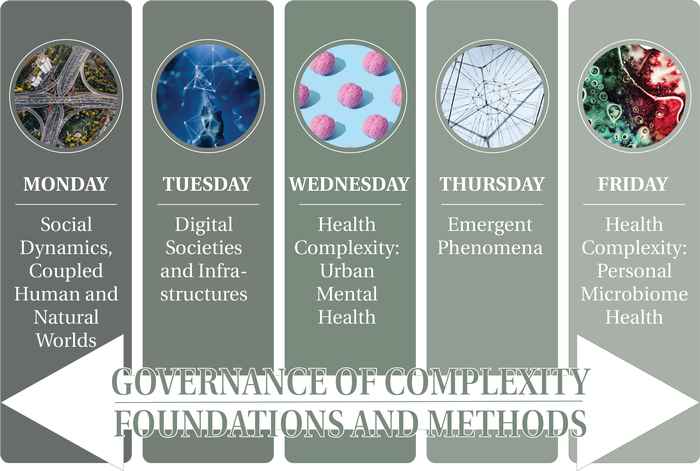| Monday |
Platform for Large-scale Analysis of Networks (PLANET-NL)
PLANET-NL is an academic research platform centered around infrastructure for the analysis of large-scale (social) networks. It brings together researchers, engineers and practitioners by providing software, expertise, tools, and opportunities for research and collaboration.
More information
For inquiries
Shaping Interfaces Between Science and the Public
Shaping Interfaces Between Science and the Public is a UvA Research Priority Area (RPA) that aims to strengthen the relationship between science, citizen science, social debate and various professional practices. ‘Shaping Interfaces’ will open a methodological window to the world, making clearer how different fields of science work, how knowledge is created, and with what uncertainties it is surrounded. The RPA is a collaboration between the faculties of Humanities, Law, Science, Social and Behavioural Sciences, and the Amsterdam UMC. The researchers involved are renowned experts with extensive experience in policy advice-making and public engagement.
More information
Coordinator: Merel Heusen
|
| Tuesday |
AI, Media & Democracy Lab
The AI, Media & Democracy Lab, which has been awarded ELSA status by the Dutch AI Coalition, work together with journalists, media professionals, designers, citizens, fellow researchers and public and societal partners, to investigate the impact of AI on the democratic functions of the media. The researchers develop and test value-driven, human-centric AI applications, as well as ethical and legal frameworks for the responsible use of AI.
More information
Coordinator: Sara Spaargaren
|
| Wednesday |
Centre for Urban Mental Health
The Centre for Urban Mental Health aims to unravel new pathways to improve urban mental health that take into account the complexities and dynamics of mental health problems and mental health disorders in an urban environment. State-of-the art complexity science is used as a backbone to understand and intervene upon the complexities and dynamics of mental health problems in an urban environment, with special attention to common mental health problems and common mental health disorders. They focus on common mental health conditions (depressive, anxiety and substance use disorders) and aim to understand why and when some groups or individuals thrive in an urban setting, whereas other individuals are vulnerable and develop mental problems.
More information
For inquiries
|
| Thursday |
Dutch Institute for Emergent Phenomena (DIEP)
The Dutch Institute for Emergent Phenomena (DIEP) is an interdisciplinary research centre across fundamental sciences with the purpose of furthering the understanding of emergent phenomena. Its goal is to create an interdisciplinary research programme that covers subjects such information theory, topological phases of matter, multiscale modelling, networks, complex systems, emergence of causality, non-equilibrium systems, collective intelligence, among many others.
More information
Coordinator: Jácome Armas |
| Friday |
COMbatting CRIMes that undermine democracy and the rule of law in a comprehensive and smart manner (COMCRIM)
COMCRIM is an interdisciplinary research project conducted by an international public-private research consortium into crimes that undermine democracy and the rule of law in and via the Netherlands. Over 28 scholars from more than nine disciplines jointly examine the systemic factors of organized crime. Public and private partners collaborate to detect such crime in unconventional data sources such as banking records, follow the money and discern criminal networks, patterns, and effects.
More information
Coordinator: Betsabé Vasquez Martinez
|
